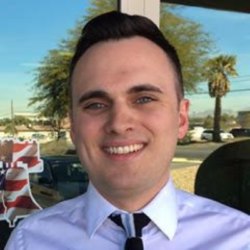Fire Chief of 17 person District takes home $395K; District seeks property tax increase
The Rodeo-Hercules Fire District is located roughly 30 minutes north of San Francisco. The District provides fire protection and emergency services to the City of Hercules and the Rodeo area and had 17 full-time employees on staff in 2013. The District serves approximately 33,000 people over roughly 23 square miles.
Recently, the District held a meeting to discuss and vote on a property tax increase that would cost residential homeowners an additional $47 – $82 per year and commercial property owners $60 per fifth of an acre. The District will announce results of that vote on June 11.
The District puts a tremendous amount of budget information on their web site for public display, which is commendable. According to the District’s Fiscal Year 2014 Budget, employee salaries and benefits comprise over 78 percent of the Rodeo-Hercules Fire District’s entire budget. Hence, any need to increase taxes is primarily a result of employee compensation. The District’s website, however, provides only limited information concerning employee compensation.
Additional employee salary information is on the California State Controller’s Office’s (SCO) Government Compensation in California website. Unfortunately, this data does not include the cost of employer-paid health benefits for Rodeo-Hercules Fire District employees.
Through a public records request, however, TransparentCalifornia.com obtained complete information on Rodeo-Hercules Fire District employee compensation, including the cost of health benefits.
This 2013 data reveals that the median compensation package for a full-time employee of the District is $262,941.
The highest paid employee of the District was the Fire Chief, who pocketed $395,635 in total compensation. Of the nearly $400k in compensation received, a substantial $128,168 was designated for the Chief’s future pension.
For 2012, the U.S. Census Bureau estimates the median household income in the City of Hercules is $92,140, and the average earnings of a full-time worker are $71,748.
Fire and emergency services are a specialized skill set that are likely to require above average levels of compensation. However, when the level of compensation for a tiny fire department rises to nearly triple the combined household income of those whom they serve, this enormous disparity in compensation cannot be attributed to merely the premium that fire/medical services command.
Rather this is an extreme case of a broader trend seen in public agencies — public employees receiving pay and benefits that dramatically exceed what comparable workers make in the private sector.
Moreover, no individual can be truly objective and impartial when making budget decisions that affect their own salary. This is one reason why it is critically important for taxpayers to have accurate information regarding the salaries of the public employees they fund. Any public agency facing budget cuts will have a natural bias against cutting their own compensation.
An attractive feature of California’s Special District model of government is the localized, agency-specific functions allows for a greater level of control and oversight by the taxpayers they serve. However, the degree and accuracy to which taxpayers can serve as an effective overseer is directly proportional to the amount of information they have on the government’s operations.
In order for residents of the Rodeo-Hercules area to be to able to assess whether or not the District’s current levels of employee compensation are appropriate, especially when accompanied by a request for higher taxes, residents need to know what its employees currently receive in compensation.
TransparentCalifornia.com provides public employee compensation data as a public service precisely for situations such as these. Would you support raising your taxes for a fire chief of a 17 person department that is already receiving $395,635 a year in compensation?
* * *
Robert Fellner is a researcher at the Nevada Policy Research Institute (NPRI) and joined the Institute in December 2013. Robert is currently working on the largest privately funded state and local government payroll and pensions records project in California history, TransparentCalifornia, a joint venture of the California Public Policy Center and NPRI. Robert has lived in Las Vegas since 2005 when he moved to Nevada to become a professional poker player. Robert has had a remarkably successfully poker career including two top 10 World Series of Poker finishes. Additionally, his economic analysis on the minimum wage law won first place in a 2011 essay contest hosted by the George Mason University.
